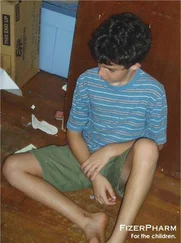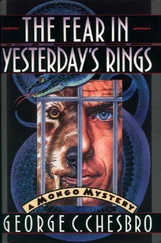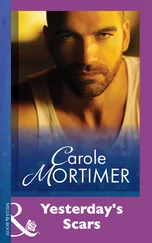‘It’s just a house, Sylvia,’ he said. ‘Quite a nice house, but a house all the same,’ as he led me through the flexible, proportioned spaces that he made for me. It was all as familiar to me as my dreams: the kitchen, where we did not make love, with wires and tubes waiting in the walls; the dining room, where he did not eat me; the reception room where he did not receive me, the bedrooms where he did not bed me.
I should tell you who made the first move and what was said. I should say how I sat down on the stairs and how his big, hesitant heart cracked under the strain.
So we did it on the first landing and it was frank, comprehensive, remarkably exciting and sad. I thought the house might fall down around our ears, but it stayed where it was.
* * *
The payment of debts is never happy. All he owed me was a fuck and whatever that implied, which in this case is a child. I loved the architect and the architect loved me. You think that makes a difference.
In my childhood book of saints there were pictures of people standing with ploughshares at their feet, cathedrals in their hands. This is the church that St Catherine built. If I painted myself now there would be a round hazy space where my stomach is, and a cathedral inside. This baby is a gothic masterpiece. I can feel the arches rising up under my ribs, the glorious and complicated space.
I can feel it reaching into the chambers of my heart, and my blood runs to it like children into school. We have the same thoughts.
Women used to kill their children all the time: it was one of the reasons for setting up the welfare state — this ‘unnatural act’. As if money were nature and could set it all to rights. Money is not nature. I have plenty of money.
I don’t want anything so bland as an abortion. Killing something inside you is not the same, we do that all the time. Don’t be shocked. These are just words I am speaking. Perhaps I will love it instead. Perhaps I will never find out what is inside and what is outside and what is mine.
We had Paul over for the celebration dinner in our new house, with its avocado bathroom, the bedroom of bluebell white, the buttercup kitchen, the apple-green dining room, and the blue, blue, blue-for-a-boy nursery, with clouds on the wall. I was a beautiful hostess, dewy with pregnancy, surrounded and filled by the men I love. Aidan is a new man. The house, the child, would have saved our marriage, if it needed saving. ‘Let it come down,’ I say, but the house is inside my head, as well as around it, and so are the cracks in the wall.
The watchmaker and his wife live in a small town in Holland and his eyesight is failing.
He is the inventor of the device which is called after him, namely ‘Huygens’ Endless Chain’, a system that allows the clock to keep ticking while it is being wound. It is not perfect, it does not work if the clock is striking. Even so Huygens is proud of his invention because in clocks all over Europe there is one small part that bears his name.
Two pulleys are looped by a continuous chain, on which are hung a large and a small weight. The clock is wound by pulling on the small weight, which causes the large weight to rise. Over the hours, the slow pull of its descent makes the clock tick.
The small weight is sometimes replaced by a ring, after the fact that when Huygens was building the original model, his impatience caused him to borrow his wife’s wedding ring to hang on the chain. The ring provided a perfect balance, and Huygens left it where it was. He placed the whole mechanism under a glass bell and put it on the mantelpiece, where his wife could see the ring slowly rise with the passing of the hours, and fall again when the clock was wound.
Despite the poetry of the ring’s motion, and despite the patent which kept them all in food and clothes, Huygens’ wife could not rid herself of the shame she felt for her bare hands. She sent the maid on errands that were more suited to the woman of the house, and became autocratic in the face of the girl’s growing pride. Her dress became more sombre and matronly, and she carried a bunch of keys at her belt.
Every night Huygens lifted the glass bell, tugged his wife’s ring down as far as it would go, and left the clock ticking over the hearth.
Like Eve, Huygens’ wife had been warned. The ring must not be pulled when the clock was striking the hour. At best, this would destroy the clock’s chimes, at worst, she would break the endless chain and the weights would fall.
Her mistake came five years on, one night when Huygens was away. At least she said that he was away, even though he was at that moment taking off his boots in the hall. He was welcomed at the door by the clock striking midnight, a sound that always filled him with both love and pride. It struck five times and stopped.
There are many reasons why Huygens’ wife pulled the ring at that moment. He put the action down to womanly foolishness. She was pregnant at the time and her mind was not entirely her own. It was because of her state and the tears that she shed that he left the ruined clock as it was and the remaining months of her lying-in were marked by the silence of the hours.
The boy was born and Huygens’ wife lay with childbed fever. In her delirium (it was still a time when women became delirious) she said only one thing, over and over again: ‘I will die. He will die. I will die. He will die. I will die FIRST,’ like a child picking the petals off a daisy. There were always five petals, and Huygens, whose head was full of tickings, likened her chant to the striking of a clock.
(But before you get carried away, I repeat, there were many reasons why Huygens’ wife slipped her finger into the ring and pulled the chain.)
* * *
When his first wife died, Sir David Brewster was to be found at the desk in his study, looking out at the snow. In front of him was a piece of paper, very white, which was addressed to her father. On it was written ‘Her brief life was one of light and grace. She shone a kindly radiance on all those who knew her, or sought her help. Our angel is dead. We are left in darkness once more.’
In Sir David’s hand was a dull crystal which he held between his eye and the flaring light of the snow. As evening fell, the fire behind him and his own shape were reflected on the window, a fact which Sir David could not see, until he let the lens fall and put his head into his hands.
There was more than glass between the fire, Sir David and the snow outside.
There was a crystalline, easily cleavable and nonlustrous mineral called Iceland spar between the fire, Sir David and the snow, which made light simple. It was Sir David’s life’s work to bend and polarise light and he was very good at it. Hence the lack of reflection in his windows and the flat, non-effulgent white of the ground outside.
Of his dead wife, we know very little. She was the daughter of James MacPherson, a poet who pretended to translate the verse of Ossian, an ancient Scottish bard, into English. Unfortunately, Ossian, son of Fingal, existed only because the age found it necessary to invent him: he moped up and down the highlands, sporran swinging poetically and kilt ahoy, while MacPherson campaigned for a seat in the House of Commons — which, in time, he won.
All the same, his family must have found sentiment a strain, in the face of the lies he propagated in the world. I have no reason to doubt that his daughters sat at his knee or playfully tweaked his moustaches, read Shakespeare at breakfast with the dirty bits taken out, and did excellent needlepoint, which they sold on the sly. The problem is not MacPherson and his lies, nor Brewster and his optics. The problem is that they touched a life without a name, on the very fringes of human endeavour. The problem is sentimental. Ms MacPherson was married to the man who invented the kaleidoscope.
Читать дальше












